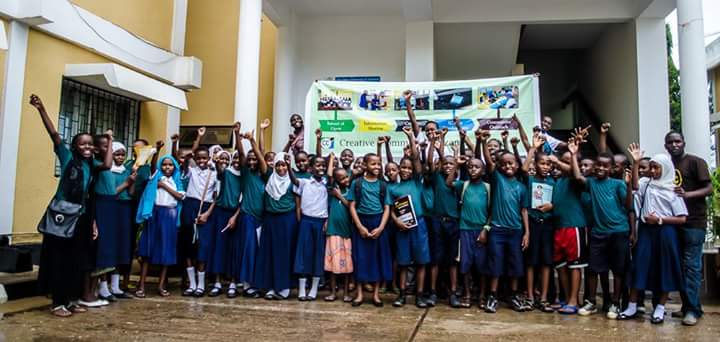YAOUNDÉ, Cameroon – Tanzania’s controversial policy of keeping pregnant girls and young mothers out of school is getting support from the country’s Catholic Church.
Last year, President John Magufuli announced that schoolgirls who get pregnant will not be allowed to go back to school after giving birth.
“As long as I am president … no pregnant student will be allowed to return to school … After getting pregnant, you are done,” the president said.
Magufuli said pregnant girls would be too distracted to concentrate on their studies.
“After calculating some little mathematics she’d be asking the teacher in the classroom ‘let me go out and breastfeed my crying baby,'” he said.
The president said the father of the pregnancy would face a 30-year jail term, so that he could put the energy he used in romancing the girl on a jail farm.
His announcement was met with outrage by several international NGOs and human rights groups, but received support from the Archbishop of of Songea, Damian Denis Dallu.
He said allowing young mothers in school “is not part of African culture,” the archbishop said.
“It’s a foreign idea that wants us to defy our culture,” Dallu said. “What kind of schools will we have if we allow students to be mothers?”
Faiza Jama Mohamed, Africa Office director of Equality Now told The Guardian, “We have to ensure girls are going to school. It’s a right. Even if it means we have to lodge a case in the courts to declare it unconstitutional, that’s a route that we’re considering.”
Equality Now said the president was violating Tanzania’s constitutionally-guaranteed right to education for all children.
“The rights and protections offered to children, including the right to education, therefore must be available to all those under this age, regardless of parental status. The law is unequivocal on this issue,” the organization said in a statement.
The president dismissed the concerns of Equality Now and other NGOs and said he would not change the policy.
“These NGOs should go out and open schools for parents,” he said.
“I’m giving out free education for students who have really decided to go and study, and now you want me to educate the parents?” Magufuli said.
A Human Rights Watch report in 2017 stated that at least 8,000 girls drop out of school every year in Tanzania, due largely to pregnancy or forced marriages.
The country’s health ministry estimates 27 percent of girls in the country get pregnant before they are 18.
In the Katavi region, located in the west of the country, the rate is 45 percent, and at a recent public meeting on the president’s policy a Catholic priest suggested an even more draconian policy to combat the problem.
Father Leonard Kasimila, a priest of the Diocese of Mpanda, said the pregnant girls and their parents should be arrested along with the fathers.
“The Marriage Act ought to be reviewed so that both parents and girls who get pregnant at a tender age are arrested and prosecuted contrary to the current situation whereby only men who impregnate teenage girls are arrested and arraigned into court,” the priest said at the Feb. 23 meeting.
The priest said the men were responsible for only 80 percent of the pregnancies, and the girls were responsible for the other 20 percent.
Earlier this year, five pregnant schoolgirls were arrested together with their parents in southern Tanzania, although they were later released on bail. Police said the girls and their families were taken into custody so that the fathers of the unborn children could be identified.
The options for girls without an education in Tanzania can often be bleak.
In a 2016 story by the Global Sisters Report, student Martha Louis Ntumbala described the situation for her friends who had children.
“Some of the girls just stay at home and take care of their families. Some girls are involved in immoral acts like prostitution, robbery and drug abuse. Some do small businesses like selling little buns or rice at the market. Others work as house girls for other families. Others do child labor; they’re looking for jobs in industries like sweeping and cleaning, moving things. Some of them walk around the streets and pick up bottles for recycling,” she said.
Dallu said a major problem is that the schools are far away from villages, meaning young girls are often exploited by men while they travel to and from school.
The archbishop proposed building dormitories for girls at the school to resolve the issue. However, the government has not provided promised funds for boarding schools for girls.


















